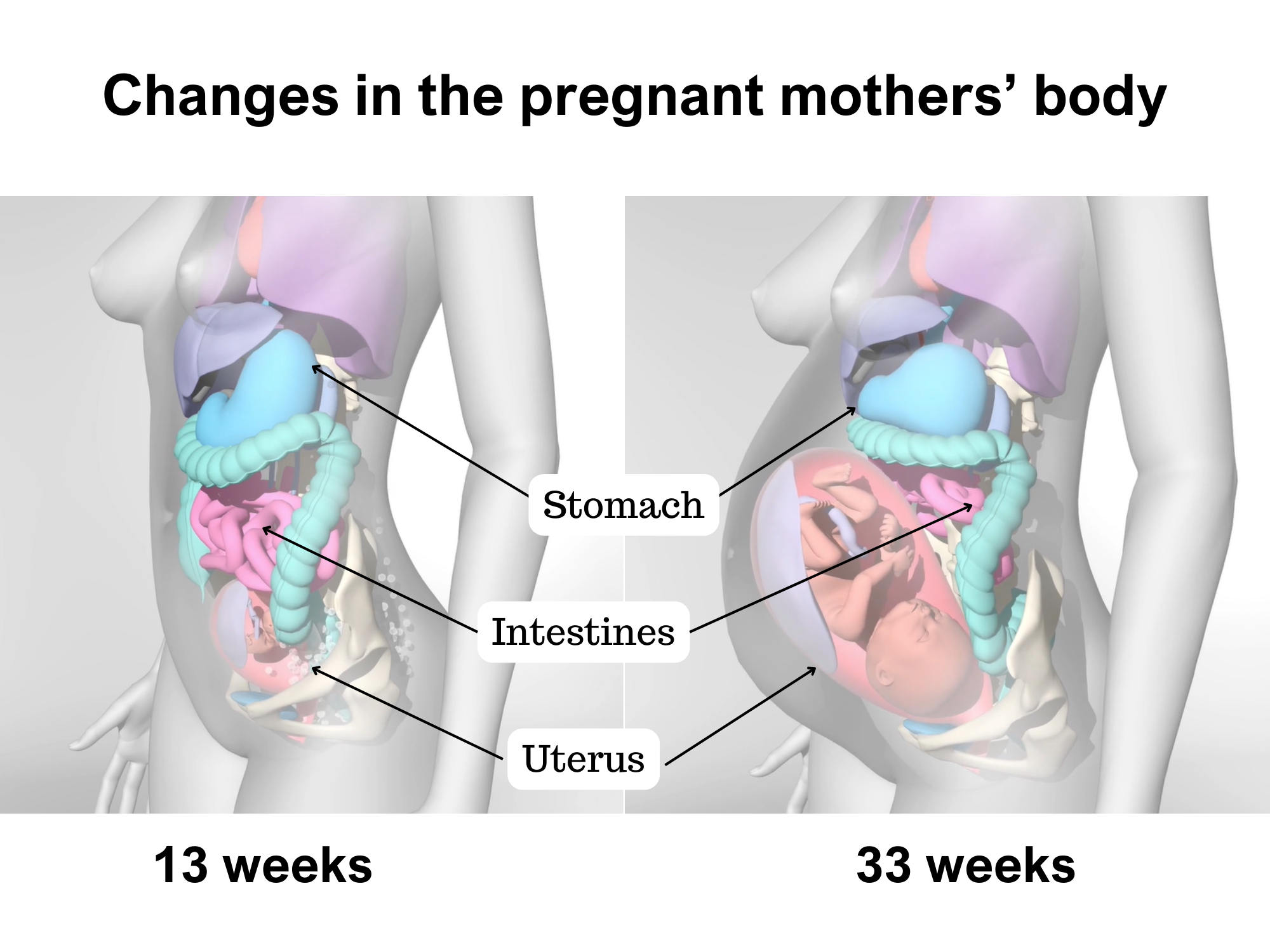Pregnancy: Journey to Beat the Bloat

Dear Mom-to-Be,
Congratulations on your exciting news! Expecting a child is a beautiful journey filled with lots of new experiences. Along with the joy, you may notice many changes in your body as it adapts to your growing baby. Some changes are wonderful, but others, like bloating, can be quite uncomfortable.
Did you know that up to 50% of pregnant women experience bloating1? So if you’re feeling like a balloon, you’re not alone. Bloating happens because of hormonal changes, especially the increase in progesterone, which relaxes your muscles, including those in your digestive tract. This slows down digestion, leading to gas and bloating.
I remember starting to feel bloated during my first trimester. It made it tough to rest well at night, and I often found myself constantly changing sleeping positions. As the baby grows, the expanding uterus presses against the intestines, slowing down digestion even more and causing bloating and gas.
Here are some tips2 that helped me, and I hope they help you enjoy your pregnancy to the fullest:
- Eat Smaller, More Frequent Meals: Instead of three large meals, I switched to eating five to six small meals a day. Eating slowly and savouring each bite helped reduce the amount of air I swallowed, which lessened the bloating.
- Watch Your Food Choices: Limit foods that cause gas, like beans, broccoli, and cabbage. Also, be cautious with spicy foods. I remember once having my favourite Sichuan dish, Mala, which ended up causing a whole night of stomach discomfort.
- Stay Hydrated: Drinking plenty of water throughout the day can help keep your digestive system moving smoothly.
Additionally, your body needs more nutrients during pregnancy, especially in the first 1,000 days of a child’s life, starting from conception3. This is the golden period to set the foundation for your child's brain development and long-term health. This can be tough if you’re experiencing morning sickness and nausea, affecting your nutritional intake.

Figure 1 As time passes, your body changes and makes room for your developing baby. You may begin to feel the bloating at first trimester due to the hormonal changes. Later, the expanding uterus presses against the intestines, slowing down digestion and causing bloating and gas.
That’s where Appeton Essentials Natal Care came to my rescue. This dietary supplement is specially designed to meet the nutritional needs of pregnant and lactating mothers. With just one caplet a day, it provides 11 essential vitamins and 6 minerals that help to prevent micronutrient deficiency4 and promote resistance against infections. Plus, it contains simethicone, an active ingredient that helps relieve bloating and excessive stomach gas. Simethicone works by breaking up gas bubbles in your gut, making it easier to pass gas and reducing bloating. As the weeks passed, I felt a significant improvement, the bloating became much more manageable.
Remember, you can get through this—just like I did. My journey taught me the importance of listening to my body and making thoughtful adjustments. Find what brings you comfort as you prepare to welcome your little one into the world.
Wishing you a smooth and joyful pregnancy. You’ve got this!
Warm regards,
Appeton Mummy

Learn more: APPETON ESSENTIALS NATAL CARE
References:
- Nazmul, MHM, Pervin, K. Mohammed Shahjahan et al (2024). Understanding Gastric Problems in Pregnancy. South African Gastroenterology Review. 22. 28.
- Pregnancy bloating and pregnancy gas. (n.d.). BabyCenter. https://www.babycenter.com/pregnancy/your-body/gas-and-bloating-during-pregnancy_247.
- Likhar, A., & Patil, M. S. (2022). Importance of Maternal Nutrition in the First 1,000 Days of Life and Its Effects on Child Development: A Narrative Review. Cureus, 14(10), e30083. https://doi.org/10.7759/cureus.30083.
- Godfrey KM, Titcombe P, El-Heis S, Albert BB, Tham EH, et al. (2023) Maternal B-vitamin and vitamin D status before, during, and after pregnancy and the influence of supplementation preconception and during pregnancy: Prespecified secondary analysis of the NiPPeR double-blind randomized controlled trial. PLOS Medicine 20(12): e1004260.
https://doi.org/10.1371/journal.pmed.1004260
